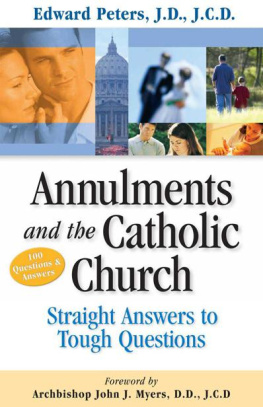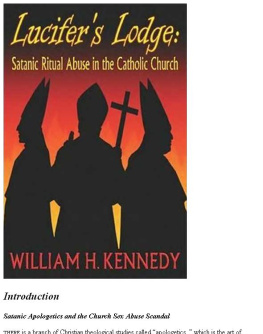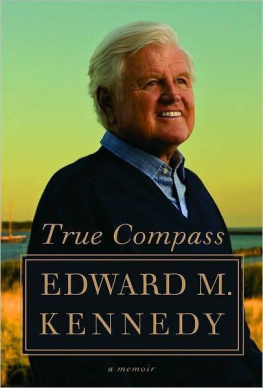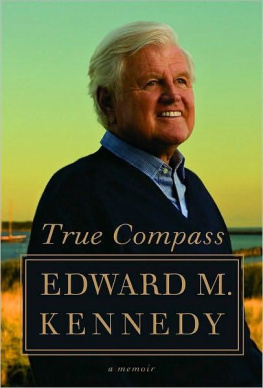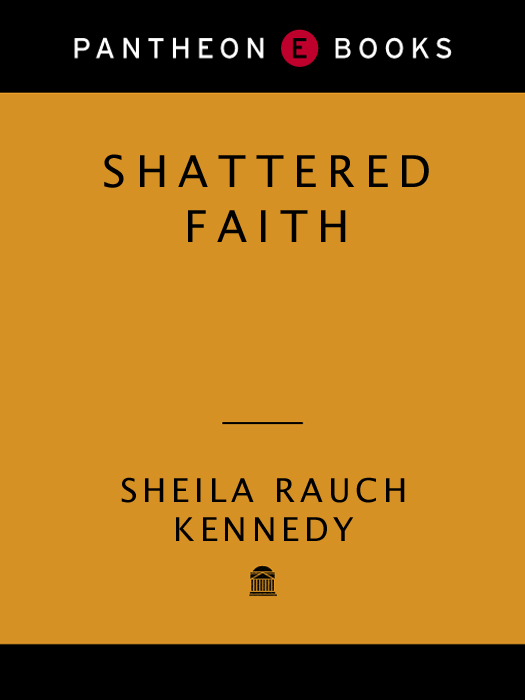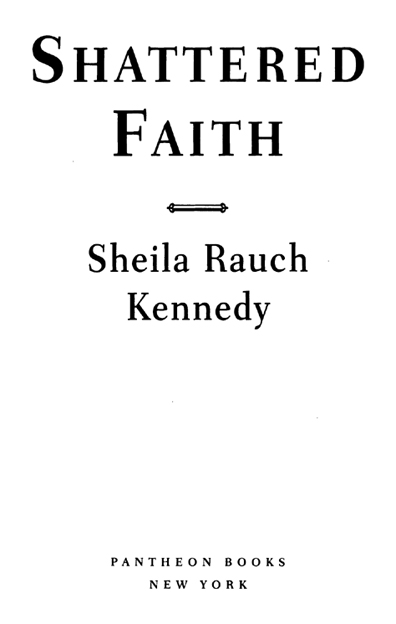All rights reserved under International and Pan-American Copyright Conventions. Published in the United States by Pantheon Books, a division of Random House, Inc., New York, and siumltaneously in Canada by Random House of Canada Limited, Toronto.
C ONTENTS

A UTHOR S N OTE

T he following is a true story. All of the characters are real. However, unless I was given permission to use the name of a major character, or unless his identity is obvious, I have used pseudonyms and in some instances changed identifying details.
Dialogues drawn from my conversations with the women who shared their stories and from conversations with their children are based upon my notes and verified by their recollections. In addition to interviews, my accounts of their annulments rely on their correspondence with the appropriate tribunal.
Descriptions of my meetings with the Boston tribunal, including dialogue, are based on my notes and written correspondence. Although I offered the tribunal opportunities to answer questions about my case as well as to give opposing points of view, the tribunal judge indicated that doing so could compromise confidentiality and declined to discuss these issues with me.
P ROLOGUE

I n 1993 my former husband asked the Catholic Church to annul our marriage. For him an annulment was a simple matter and his reasons for wanting one were straightforward. We had been divorced for over two years and he wanted to remarry. Since the only way he could do so and remain in good standing within the Church was to have our marriage declared invalid, he was prepared to testify before a church court that in the eyes of God our marriage had never existed. Whats more, I was expected either to do the same or at least not to impede the annulment process.
My first reaction to his request was emotional and personal. I was appalled. My husband and I had known each other for nine years before we married in a Catholic ceremony. We had been married for twelve years before we divorced, and we had two wonderful children. I could not understand how anyone could claim that our marriage had never been valid. It seemed that if I were to agree to an annulment, I would be lying before God.
I knew that I would defend my marriage. Almost immediately, I began searching for information to help me understand the annulment process and make some sense of the anguish I was feeling. I read books on church law which traced the origins of annulment to medieval times. I met with historians, priests, professors, and lawyers who were familiar with church courts.
After my initial research, I began to see annulment in a broader context. I grew to appreciate how difficult it was for the Church to remain loyal to its sacred principle that a marriage is forever while simultaneously showing compassion to its divorced members who wished to remarry. I saw too that there were times when an annulment might be justified, although most often these cases were childless unions of short duration.
My research did not, however, assuage my concern for my children. Nor did the reassurances of priests who explained that even if my former husbands petition were granted, our children would still be legitimate and full members of the Church. I was not worried about my childrens legitimacy. I knew that American civil law would protect their legal rights. Nor had I presumed that the Church would discriminate against them.
My concern was for my childrens moral development, a responsibility I felt the Church had shared with parents and the larger community for nearly two thousand years. To me, were the Church to declare my children the offspring of a marriage that had never existed, it would be abdicating its sacred and historical role to protect and promote their moral well-being.
My former husbands public statement that he was waiting for an annulment to set the date for his wedding sparked several news articles. When I responded to one such story, stating my opposition to the annulment, I discovered my views were shared by others. People I didnt even know offered me support. Men told me to stick to my guns. Some mentioned children as their overriding concern. Others simply underscored the need for basic honesty in both our institutions and our daily lives.
But the vast majority of my supporters were women, many whose marriages had been annulled. Their letters told of their feelings of helplessness and betrayal. Many emphasized that the annulment had devastated their children. Moved by the eloquence and urgency of what these women said, I contacted some of them and asked if we could meet.
All of the women I spoke with were married for more than twenty years and each is the mother of least three children. Most were raised as traditional Catholics. The others were dedicated converts who joined the Church to share their husbands faith. Largely because of their strong beliefs in the Churchs teachings, they had forgone careers and defined themselves as wives and mothers. When the Church declared that the unions to which they had dedicated their lives had never existed, their faith in the institution and in themselves was shattered.
Listening to them talk of their marriages, I was at first struck by the sacrifices they had made for others. They spoke of family, community, and the ever-present Church. Most had been actively involved in their parishes. They taught religion classes, served on altar committees, and participated in Church-sponsored retreats. Sometimes it seemed as though they were speaking of a time long ago when the Church was the focus of community life.
As I listened more carefully, however, I realized that much of what they were saying was not about how things used to be but about their fears for the future. Many saw their church, the entity they had once trusted above all others, as one more institution that had abandoned traditional values for short-term gain and social convenience. They saw a future in which their children would be unable to rely on the Church either as a moral beacon within their communities or as a source of comfort in a family crisis. And they felt that without moral principle or truth, there would be no trust, and that without trust, a community and a family would break down.
There is an almost tragic irony in the annulment policy of the American Catholic Church. By all accounts as the next millennium draws near, more Americans are searching for truth and many are returning to organized religion to find it. Public speeches often sound similar to religious sermons with the emphasis on family values, commitment, community, and personal integrity. Politicians and community leaders now speak of individuals accepting responsibility for their actions as a prerequisite for successful social programs. Ethics is a common theme at business symposiums.
Ironically, as currently practiced in the United States, annulment undermines these same values many Americans are now celebrating. Those seeking annulments are not encouraged to accept responsibility for their failed marriages. Rather, the Church searches for a technicality in its laws that will render the marriage invalid. The person seeking an annulment is vindicated of responsibility for the breakup of the union on the grounds that there never was a true marriage in the first place. While the legitimacy of the children of annulled marriages remains intact, they nevertheless have become the offspring of unions that never existed. For some persons, annulment requires an even greater compromise in personal truth: lying before God.



